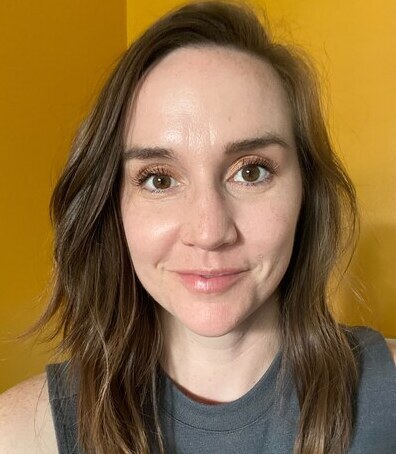
When I returned to IUPUI as a nontraditional student, I knew I wanted an education that would support and expand upon my lived experience as a healthcare consumer and allow me to direct my innate sense of activism and advocacy in ways that would help people – patients – like myself.
The interdisciplinary scope of the Medical Humanities and Health Studies program provided me with a strong and powerful understanding of the myriad ways in which the practice of medicine can shape the lives of people who seek health care for both acute and chronic conditions. But above all, I valued the foundational differentiation between illness and disease – disease being the diagnosed condition, illness being the lived experience of that condition – because it led me to a much more detailed understanding of everything that influences the practices of providing and seeking healthcare. Studying topics like the social determinants of health, the narrative storytelling of illness experiences, and the intricate questions posed in bioethics consultations enriched my understanding of where, and how, I wanted to dedicate my work in the world of healthcare improvement.
As I learned more about social determinants of health, and as I dove deeper into the lived experiences of people with acute and chronic illness, I became interested in the use of data to illuminate these struggles and to offer solutions. I developed a deep respect for mixed-methods research, using both qualitative and quantitative study to detail gaps in healthcare access, how those gaps shape outcomes over time, where those gaps occur, and why. I pursued the MHHS Bachelor of Science to expand my knowledge of statistical methods and modeling. I also minored in epidemiology, which proved a strong complement to the diverse considerations of the medical humanities core: the history of medicine and public health; the ever-evolving ethics of clinical practice; and the long, deep legacies of cultural influence and context that cannot be uncoupled from our experience of healthcare.
All of this allowed me to pursue the position I hold now at the Regenstrief Institute. I work as a project coordinator for the Learning Health Informatics program, which is housed in the Center for Biomedical Informatics. I work with clinical and public health researchers to improve and expand the collection and operability of electronic health data, with the overall goals of eliminating access gaps, overcoming health disparities, and improving health outcomes for all people.
I can say that, without a doubt, my time in the Medical Humanities and Health Studies program was essential to my current position and to my future academic and career plans. While my work might sound highly data-driven, the truth is that every researcher on every project in my program is driven by their own humanity, their own experiences in the healthcare system, and their own understanding of who needs their help and why. The ‘why’ of even the most detailed EHR interoperability algorithm or the most intense data analysis can be boiled down to a basic motivation: to make healthcare better, and more equitable, for the people who seek it. And that is the heart of medical humanities.

